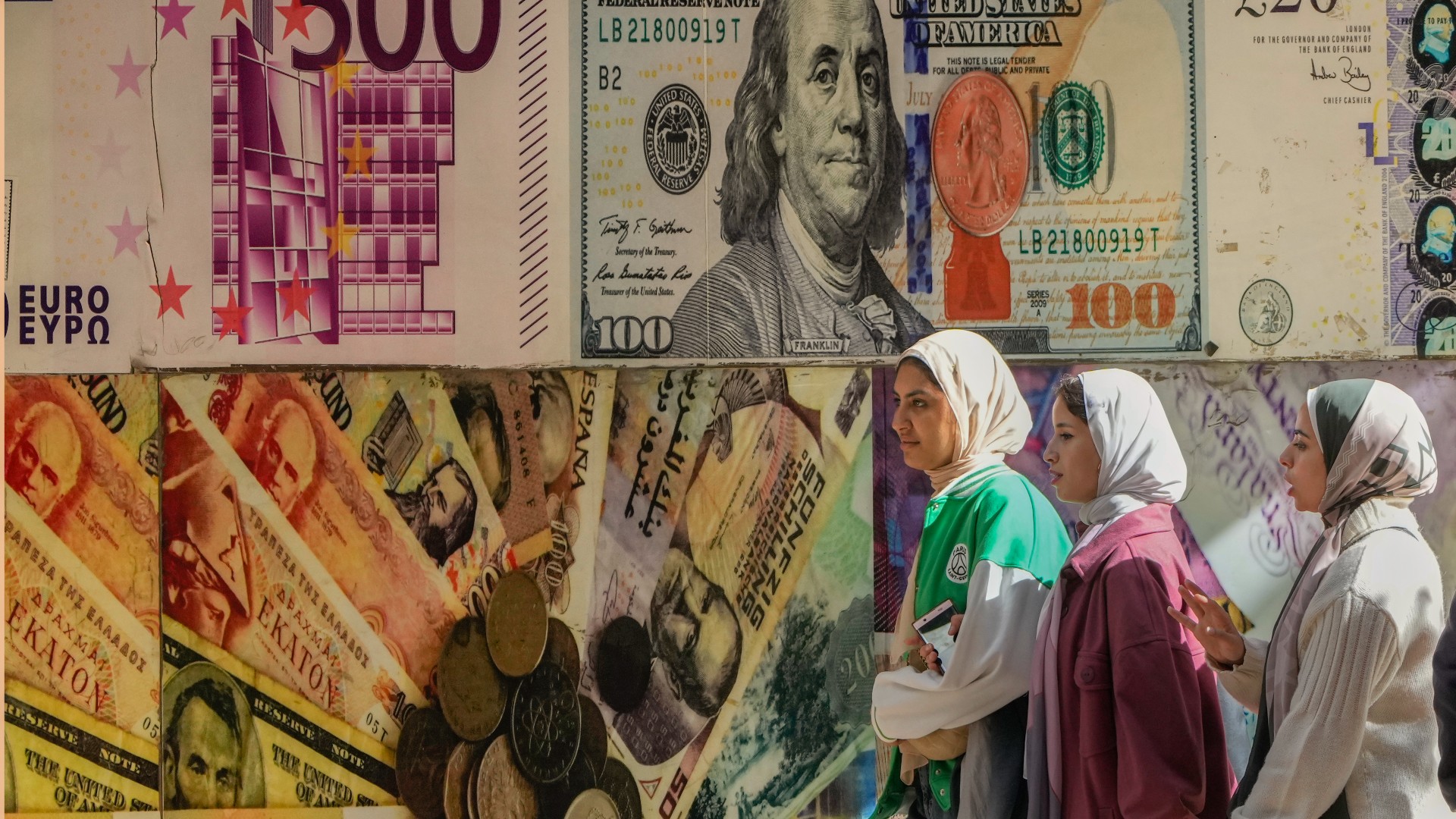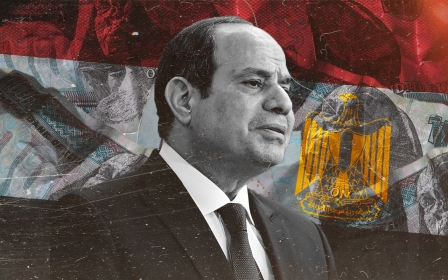Are Gulf leaders abandoning Egypt?

Egypt is currently facing a severe economic crisis, as the Egyptian pound has lost half of its value since March of last year, and inflation has jumped to 24.4 percent according to official figures.
Meanwhile, the country's external debt has risen to nearly $170bn.
Many observers and international financial institutions have warned that Egypt may be headed for an unprecedented economic crisis, possibly even collapse. Despite this, Egyptian President Abdel Fattah el-Sisi does not seem worried.
Sisi recently responded to Egyptian complaints about the difficult economic and social conditions with disdain and nonchalance, going as far as to accuse citizens of not knowing anything, and insisting that he is the only one who has any real information about the situation.
The question is, where does Sisi get the confidence that his country will overcome the current economic crisis? Is there a relationship between his alleged knowledge and the support provided by Gulf countries?
Stay informed with MEE's newsletters
Sign up to get the latest alerts, insights and analysis, starting with Turkey Unpacked
The end of a 'golden era'
Since Sisi's takeover following the July 2013 coup, Arab states in the Gulf, especially Saudi Arabia, the UAE and Kuwait, have provided substantial financial aid to the regime.
This support has manifested in a variety of forms, including deposits in the Egyptian central bank, which currently constitute approximately 82 percent of the country's total foreign currency reserves. Additionally, there have been various investments and acquisitions of Egyptian companies and institutions as part of the government's economic policy.
Gulf countries also provided guarantees to international financial institutions such as the International Monetary Fund to support the Egyptian economy.
However, recent reports suggest that the Gulf countries have begun to withdraw their support for Sisi due to the ongoing economic crisis in Egypt. Sisi's inability to address it has led to disappointment among the Gulf countries that have invested heavily in Egypt.
Some observers have gone further to suggest that the Arab states are abandoning Sisi because of his failure to run the country and becoming financially burdensome to them. Therefore, they are not providing him with enough support to exit the financial crisis, and they are pressuring the military establishment to find an alternative to Sisi.
This theory is particularly relevant in light of the Gulf countries' reluctance to provide Sisi with the kind of financial assistance they offered after his coup in 2013.
Sisi has openly acknowledged this in a speech before the economic conference that was held in late October, where he said that "friends and allies have become convinced that the Egyptian state is no longer able to stand up again after they provided assistance for years to solve crises and problems."
There is also a growing willingness to openly oppose funding Egypt among Gulf officials. For example, Kuwaiti MP Osama Alshaheen warned his government against funding the Sisi regime as part of the IMF’s recent deal.
Media figures close to some of the Arab leaders in the Gulf, such as the well-known journalist Amr Adib, have also criticised Sisi's economic policies and performance. Adib's daily programme, Al-Hekaya, airs on the Saudi-funded MBC Egypt channel.
Common enemies
But is it true that the Gulf has abandoned Sisi? To answer this, it is important to understand the background of the relationship between Sisi and the Gulf countries, especially Saudi Arabia and the UAE.
These countries have supported Sisi over the past few years for three main reasons. First, Sisi's repressive policies have been viewed as beneficial by Saudi Arabia and the UAE, as they have thwarted demands for democratic change in Egypt and prevented the possibility of new revolutions or uprisings.
The Arab Spring uprisings were perceived as an existential threat by these countries, and they sought to prevent them by any means necessary.
Secondly, Sisi's strong stance against political Islam and the Muslim Brotherhood, which is considered a terrorist organisation by Saudi Arabia and the UAE, has also been a key factor in their support for him. This aligns with their own domestic policies and their efforts to combat political Islam in the region.
Finally, Sisi has been viewed as a reliable partner in maintaining regional stability, and has demonstrated a willingness to take a leadership role in the Arab world. This is especially important for Saudi Arabia and the UAE, as they seek to counter the influence of Iran in the region.
Shifting priorities
The question now is: are these joint interests between the Sisi regime and the Gulf countries still in place now?
It is crucial to assess whether these mutual interests are substantial enough to justify the financial and economic support that the Gulf countries have provided to Sisi. It can be argued that the interests of Gulf countries in Egypt have undergone a shift in recent years.
Several factors may have contributed to this change. First, the Gulf nations may no longer perceive there is a significant threat of revolution or uprising in Egypt due to the weakening of any political opposition and fragmentation within the Egyptian political landscape.
This can be attributed, in part, to the severe repression and fear inflicted by the Sisi regime over the past decade. The political disengagement and apathy of the Egyptian populace as a result of these policies may have also diminished the perceived threat of revolution.
Furthermore, the preoccupation of the Egyptian population with meeting their basic needs and the lack of hope for change may have also contributed to this shift in priorities.
Another factor that may have contributed to the shift in Gulf countries' interests in Egypt is the decreased threat posed by the Muslim Brotherhood. This can be attributed to a combination of factors, including the targeted security crackdowns carried out by the Sisi regime over the years and the divisions and fragmentation that the group has experienced both internally and externally.
Given these developments, the Muslim Brotherhood has been significantly weakened and is no longer perceived as a significant threat to any regime in the Arab region, as it was prior to the Arab Spring.
A weaker Sisi
Lastly, it is possible that Gulf countries have found alternative options to counterbalance Iran, which may have led to a shift in their interests in Egypt. These options may include forming alliances with the United States and its allies, particularly Israel, or utilising various proxy groups and militias in the region.
A weaker Sisi may still be seen as a preferable option as it allows for more manipulation to achieve the greatest benefit for Gulf countries' interests
The Gulf countries may have come to see these alternatives as more viable or preferable options to relying on Egypt to challenge Iran's influence.
This shift in interests can be attributed to the changing political and strategic landscape of the region and the Gulf countries' reassessment of their national security priorities.
However, while the theory that Gulf countries will abandon the Sisi regime may appear logical, ultimately it remains speculative. Despite frustration and anger towards Sisi among his Gulf supporters, it is unlikely that they will abandon him, as he still represents a valuable asset in terms of protecting their interests in Egypt and the region.
Replacing Sisi could result in a state of confusion and chaos that would negatively affect the region and ultimately also threaten their own interests. A weaker Sisi may still be seen as a preferable option as it allows for more manipulation and exploitation to achieve the greatest benefit for Gulf countries' interests.
Thus, while the relationship between the Gulf countries and the Sisi regime may be strained, it is unlikely to come to a complete end.
The views expressed in this article belong to the author and do not necessarily reflect the editorial policy of Middle East Eye.
This article is available in French on Middle East Eye French edition.
Middle East Eye delivers independent and unrivalled coverage and analysis of the Middle East, North Africa and beyond. To learn more about republishing this content and the associated fees, please fill out this form. More about MEE can be found here.







